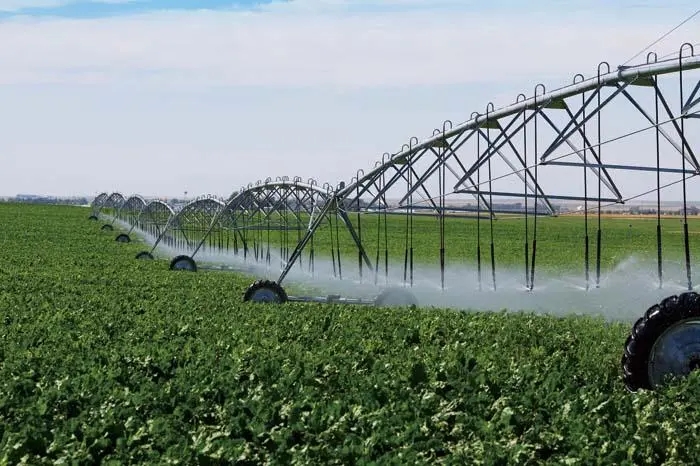

— Blogs —
—Products—
 Consumer hotline +8618073152920
Consumer hotline +8618073152920 WhatsApp:+8615367865107
Address:Room 102, District D, Houhu Industrial Park, Yuelu District, Changsha City, Hunan Province, China
Product knowledge
Time:2024-02-25 20:33:42 Popularity:1457
A smart irrigation system using Internet of Things (IoT) technology offers numerous benefits over traditional irrigation methods. Some of these benefits include:
1.Precision Watering: IoT-based smart irrigation systems can collect data on soil moisture levels, weather conditions, and plant needs, allowing for precise watering based on actual need rather than set schedules. This helps in conserving water and reducing waste.

2. Energy Efficiency: By accurately timing watering based on real-time data, smart irrigation systems can also reduce energy consumption associated with water pumps and sprinkler systems.
3. Saving Time: With a smart irrigation system, there's no need for manual adjustments or monitoring of the irrigation schedule. This frees up time for gardeners and farmers to focus on other tasks.
4. Reducing Disease: Over-watering can lead to increased humidity and moisture, which can promote the growth of disease-causing organisms. Smart irrigation helps to prevent such conditions by adjusting to the actual needs of the plants.
5. Remote Access and Control: Users can control and monitor their irrigation systems remotely via smartphones, tablets, or computers, allowing for easy management even when they are away from their gardens or farms.
6. Weather-Based Adjustments: Smart irrigation systems can integrate with weather APIs to adjust watering schedules based on current weather conditions, such as rainfall, temperature, and humidity.
7. Data Analytics: The data collected by smart irrigation systems can be analyzed over time to optimize water usage, improve crop health, and predict future needs.
8. Improved Plant Health: By providing plants with the correct amount of water based on their specific needs, smart irrigation systems can help promote healthier and more robust plant growth. This precision watering can also reduce the risk of overwatering or underwatering, which can lead to plant stress and disease.
9. Cost Savings: While the initial investment in a smart irrigation system may be higher than traditional systems, the long-term savings from reduced water and energy usage can often offset this cost.
10. Environmental Friendliness: By minimizing waste and optimizing water usage, smart irrigation systems contribute to the conservation of water resources and the reduction of environmental impact.
Overall, the integration of IoT technology into irrigation systems offers a sustainable and efficient way to manage water resources for agriculture and gardening, providing environmental, economic, and social benefits.
Related recommendations
Sensors & Weather Stations Catalog
Agriculture Sensors and Weather Stations Catalog-NiuBoL.pdf
Weather Stations Catalog-NiuBoL.pdf
Related products
 Combined air temperature and relative humidity sensor
Combined air temperature and relative humidity sensor Soil Moisture Temperature sensor for irrigation
Soil Moisture Temperature sensor for irrigation Soil pH sensor RS485 soil Testing instrument soil ph meter for agriculture
Soil pH sensor RS485 soil Testing instrument soil ph meter for agriculture Wind Speed sensor Output Modbus/RS485/Analog/0-5V/4-20mA
Wind Speed sensor Output Modbus/RS485/Analog/0-5V/4-20mA Tipping bucket rain gauge for weather monitoring auto rainfall sensor RS485/Outdoor/stainless steel
Tipping bucket rain gauge for weather monitoring auto rainfall sensor RS485/Outdoor/stainless steel Pyranometer Solar Radiation Sensor 4-20mA/RS485
Pyranometer Solar Radiation Sensor 4-20mA/RS485
Screenshot, WhatsApp to identify the QR code
WhatsApp number:+8615367865107
(Click on WhatsApp to copy and add friends)